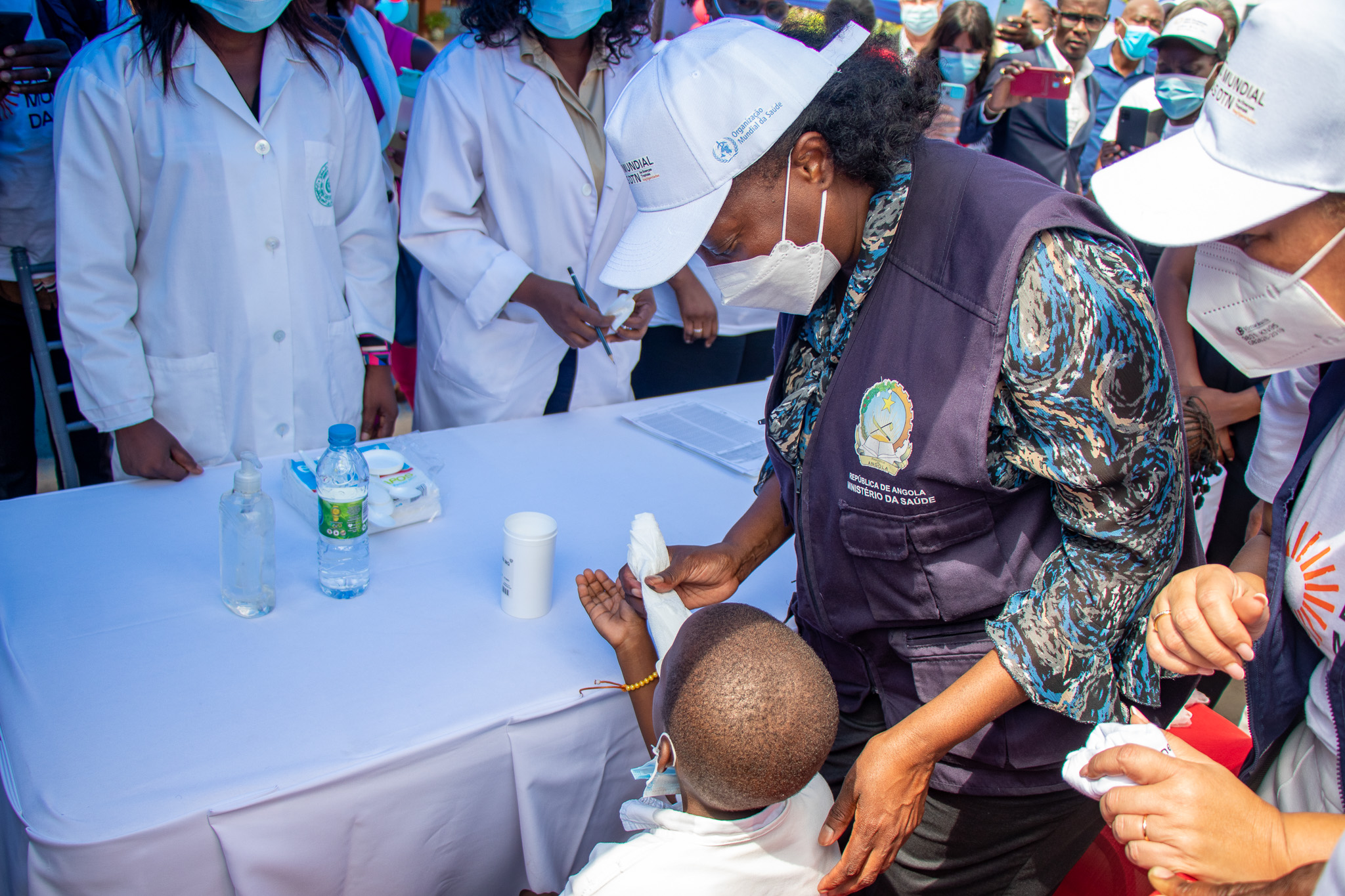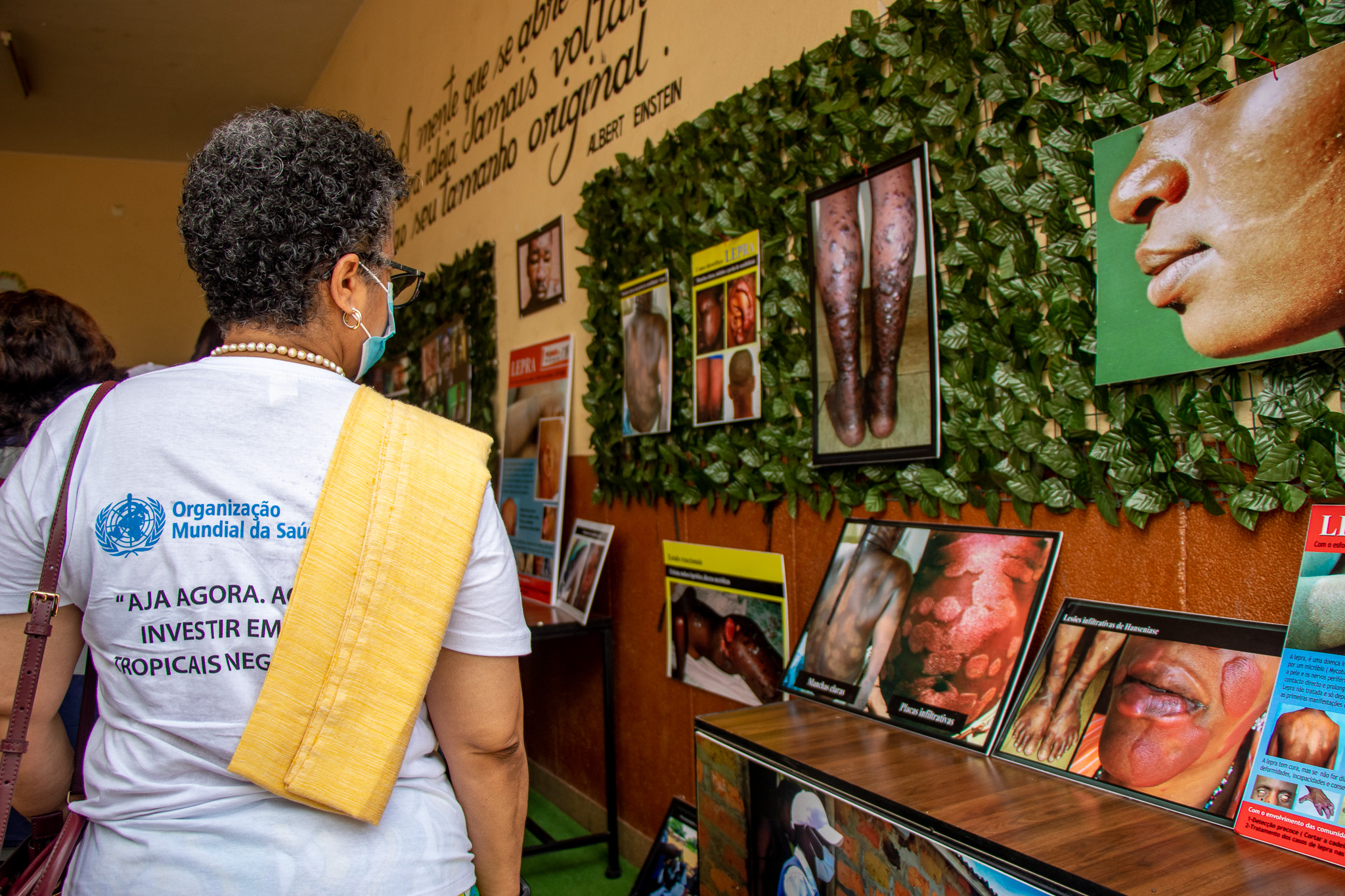Angola marks the World Day for Neglected Tropical Diseases with commitment to elimination
Luanda, Angola – In reference to the World Day for Negligible Tropical Diseases (NTDs), celebrated every year on the 30th of January, the Angola Ministry of Health (MINSA), with the support from the World Health Organization (WHO), brought together the main key partners to draw attention to NTD priorities , the efforts made, and also to reflect on partnership between communities, sectors, and countries to advocate for more investments and actions aimed at preventing and eliminating NTDs.
According to the Minister of Health, Dr. Silvia Lutucuta, who was speaking during the opening ceremony, despite the difficulties facing the country, some significant progress has been reached towards achieving the targets set by the WHO for the elimination of NTDs.
“In 2005, we successfully achieved the goal of eliminating leprosy as a public health problem, which should captivate and motivate everyone. We are aware that there are still several challenges to ensure the elimination of NTDs, so I call on all Angolans to unite to continue facing the challenges of eliminating NTDs”.
NTDs affect more than one billion people worldwide, leaving poor and vulnerable populations often debilitated exacerbating the cycle of poverty. This results, among other factors, in poor educational outcomes and reduced professional opportunities.
NTDs, caused by a variety of pathogens, are "neglected" because they are almost absent from the global health agenda, benefit from little funding and are associated with stigma as well as social exclusion.
The WHO Representative in Angola, Dr. Djamila Cabral, believes that NTDs are also responsible for other consequences, such as disability, stigmatization and limited access to social services. This can place considerable strain on both patients and their families.
WHO understands these consequences. According to Dr. Djamila, “WHO has been calling on everyone, including leaders and communities, to fight against inequalities resulting from NTDs and make bold and sustainable investments, in order to protect and free more than 1.5 billion people from the cycle of poverty, living in the most vulnerable communities around the world”.
“Despite the difficulties inherent in their control, NTDs can be controlled, eliminated, and eradicated as evidenced by many success stories. Therefore, it is our conviction that, working together, in an integrated and coordinated manner, we can ensure that essential health services reach everyone who needs them to guarantee universal health coverage and the elimination of NTDs, leaving no one behind”.
In recent years, despite the difficulties imposed by the COVID-19 pandemic, significantly affecting diagnosis, treatment and care for NTDs, with a 34% decrease in the number of people treated between 2019 and 2020, MINSA and its partners have been accelerating actions to combat NTDs in Angola.
Some of the initiatives carried out by MINSA include the elaboration of a national strategic plan for NTDs 2021-2025, reforming the movement to combat NTDs, inclusion of NTDs in the national health agenda, adoption of innovative approaches to combat NTDs, including those used during the COVID-19 pandemic, promoting multisectoral collaboration and community engagement to combat NTDs.
The central act of World NTD Day, celebrated under the motto “Act now. Act together. Invest in Neglected Tropical Diseases”, took place in one of the schools in the country's capital, Luanda, in an event full of cultural activities and provision of health services to the population, with the participation of approximately 500 people from a cross section of society.





